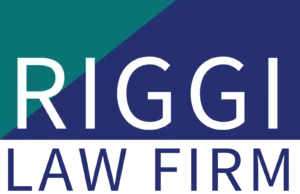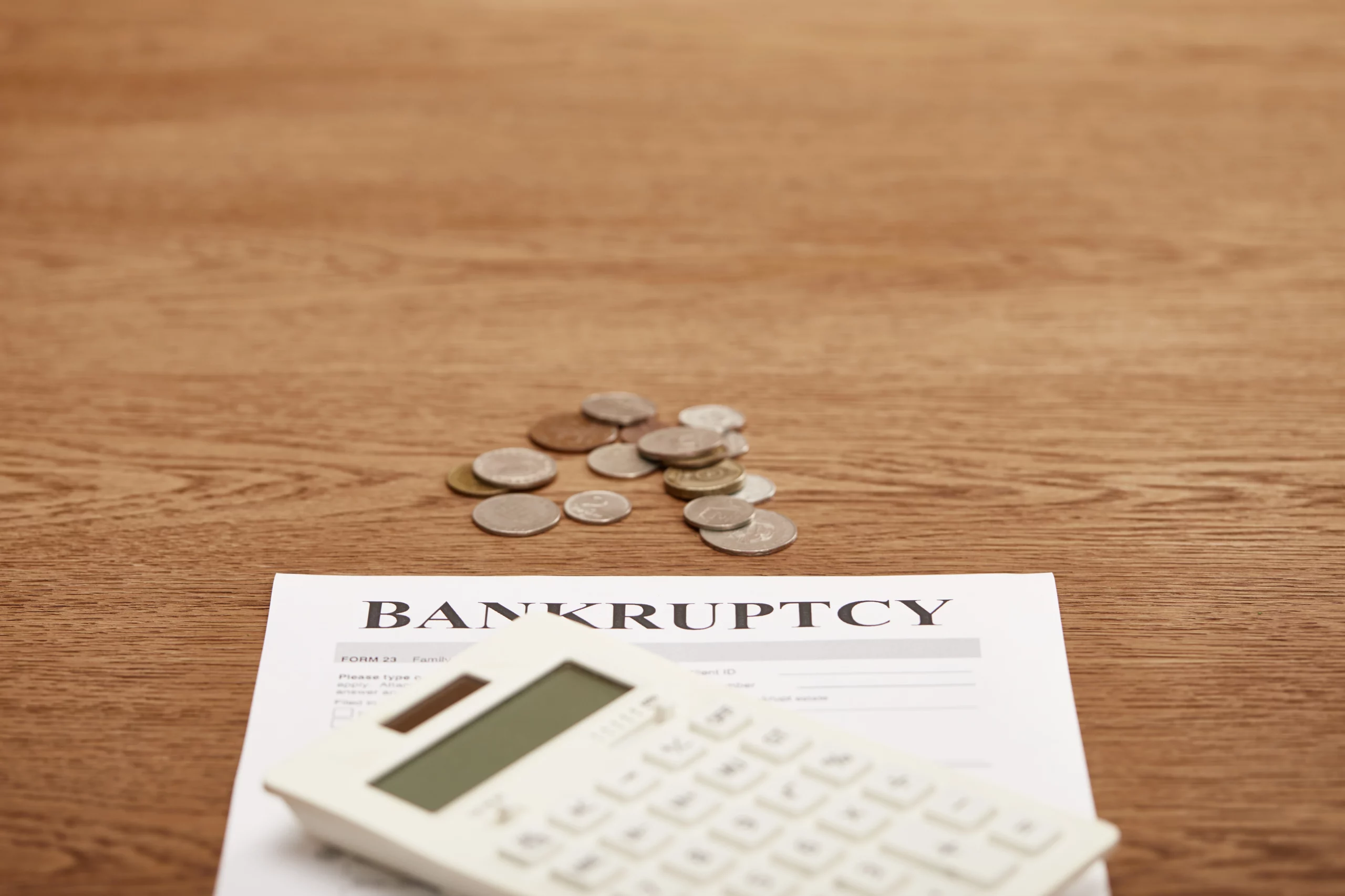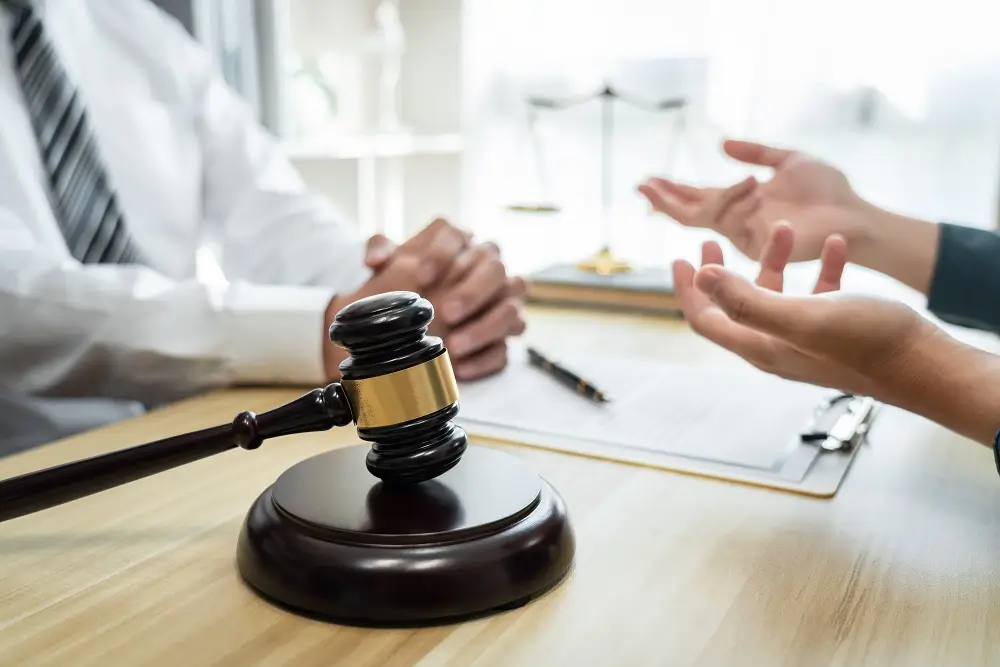Keep Your Hard-Earned Possessions with The Help of our Vegas Attorney
Feeling like your car is one missed payment away from vanishing into thin air? You’re not alone. Repossession is a scary reality for many, and the stress of it all can feel overwhelming. But before you give up hope and wave goodbye to your wheels, remember: you have options.
Here’s the reality: In Nevada, repossession can happen fast, leaving you stranded and drowning in debt. But before the tow truck arrives, there’s hope. You have options. And a Vegas bankruptcy attorney can help you stop repossession.
Quick Summary:
- Understanding Repossession in Nevada:
-
-
- Secured loans can lead to repossession if payments falter, giving creditors unique powers in Nevada.
- Self-help repossession allows reclaiming property without a court order, creating a swift process for creditors.
-
- Nevada Repossession Laws:
-
-
- Your car loan defaults only after 30 days of missed payments.
- Watch for potential pitfalls like contract clauses or early pressure from lenders.
-
- Who’s Allowed to Repossess?
-
-
- Only licensed repossession agents can legally take your property in Nevada.
- Repossession agents must meet specific criteria, ensuring professionalism and legality.
-
- How Should Repossession Happen?
-
-
- Nevada law emphasizes repossession must occur “without breach of the peace,” preventing forceful entry, threats, or violence.
- Examples of peace breaches are highlighted, emphasizing protection for debtors.
-
- Wrongful Repossession in Nevada:
-
-
- Nevada law deems grabbing property before official default as a deceptive trade practice.
- Recent legal changes allow consumers to shift attorney fees to the repossessor, providing a powerful tool to contest wrongful repossession.
-
- Options to Stop Garnishment:
-
-
- Negotiating with creditors for a temporary payment delay or surrendering collateral for full debt settlement.
- Selling the property, offering control and potential profit, or fighting repossession if it wasn’t done properly.
-
- Filing for Bankruptcy:
-
-
- Bankruptcy, through an automatic stay, can halt repossession efforts, providing time to explore options.
- Chapter 7 offers a clean slate but may involve losing non-exempt assets, while Chapter 13 allows for asset retention with a court-approved repayment plan.
-
- Can I Redeem My Property After Repossession?
-
-
- Nevada law provides a right of redemption, allowing payment to reclaim the property before sale.
- Surplus funds or deficiency may result depending on the sale outcome.
-
- Why Do I Need an Attorney?
-
- Repossession in Nevada is complex, and an attorney can navigate laws, negotiate with creditors, protect rights, explore options, and minimize stress.
- Risks of going without an attorney include permanent loss of the vehicle, increased debt, and credit score damage.
Understanding Repossession in Nevada
Dreaming of cruising down desert highways in a new car or hitting the lake with your RV? Secured loans make these dreams a reality, but behind the shiny paint and rumbling engines lies a hidden reality: the very property you financed can be snatched back if payments falter. We call that “repossession.”
Unlike your credit card debt or that hospital bill, secured creditors in Nevada often have a unique power: self-help repossession. This means they can reclaim your car, boat, or even your house without a court order or even a knock on the door.
Nevada Repossession Laws
Navigating the winding road of repossession in Nevada requires understanding your rights and the options available.
When Can a Creditor Repossess My Property?
Your car loan can’t go into default until your payment is 30 full days late. Before that, the lender can’t legally repossess your beloved vehicle.
But watch out for two roadblocks:
- Sneaky Contract Clauses: Some loan contracts might still have that “one-day default” clause. While it’s not enforceable, some lenders might try to use it. Read your contract carefully!
- Early Pressure: Even though they can’t repossess before 30 days, lenders can still call you, send reminders, or try to negotiate during that period.
Who’s Allowed to Repossess?
In Nevada, only a licensed repossession agent or their employee can legally take your car. Picture a team of professionals, trained in the intricacies of repossession and bound by strict regulations.
To join this repo crew, you need to tick some boxes:
- 18 years or older: No teenagers repossessing your ride!
- Clean criminal record: A spotless past is essential for handling sensitive financial matters.
- Employed by a licensed agent: They work for the repossession company, not themselves.
One exception exists: An employee can repossess property for their own employer, but only if they work exclusively for that company.
How Should Repossession Happen?
Nevada law doesn’t lay out a step-by-step repossession guide. Instead, it sets a crucial ground rule: Repossession must happen “without breach of the peace.” This means no forceful entry, threats, or violence. Think of it as a traffic law for repossession agents – breaking it lands them in hot water.
Here’s what this means for you:
- No midnight surprises: Repossession can’t happen under the cover of darkness. They have to show up during reasonable hours, usually daylight.
- Respect your personal space: Your home is your castle, and repossession agents can’t barge in without your permission or a court order. Garages and locked spaces are also off-limits.
- No strong-arm tactics: Threats, intimidation, or physical force are absolutely forbidden. If you feel unsafe, call the police.
Here are some examples of acts that breach the peace:
- Driving dangerously to force you to pull over
- Trying to remove you from the car by force
- Breaking into your locked garage
This is not a comprehensive list, but it just shows that repo men cannot simply take your vehicles. Nevada laws protect debtors from sleazy acts like these.
What is Wrongful Repossession?
Nevada law (NRS Section 598.092) says it loud and clear: grabbing your car before you’re officially in default is a deceptive trade practice. Even though you might have had a case for breach of contract before this law, it wasn’t always worth the fight. Attorney fees can be a pain, making it hard for many folks to stand up to unfair repossession.
But now, things have changed. The new law gives consumers like you a mighty weapon: shifting attorney fees to the repossessor who broke the rules. This means you can fight for compensation for the wrongful taking of your car without worrying about the hefty cost of legal fees.
What Are My Options To Get Stop Garnishment?
Negotiate with Your Creditors
Yes, creditors can legally take your stuff, but they’re also cool with getting paid fast. Sometimes, offering a one-time payment or setting up a payment plan can work better for everyone.
Here are some options:
- Extend The Deadline: Talk to your lender, explain your situation, and propose a temporary payment delay.
- Cut Your Losses: Consider surrendering your collateral in exchange for full debt settlement.
Sell the Property
Selling your car could be your escape route, putting you back in control and leaving the creditors in the dust.
Why selling beats repossession:
- Bye-bye stress: Skip the legal headache and emotional turmoil. Sell your car on your terms and keep your peace of mind.
- Cash in your wheels: You might even pocket some money after paying off your loan. Who knew a financial pit stop could lead to unexpected profits?
- Choose your buyer: No more shady repossession agents. Find a buyer who appreciates your ride, whether online, at a dealership, or through private sale.
Fight the Repossession
If the repo man comes knocking in Nevada, it doesn’t mean your car is automatically toast. In some situations, you have the right to fight back if you think the repossession wasn’t done properly.
They Broke the Rules:
- Breaching the Peace: No violence or threats allowed! If the repossessors got physical or barged into your home, that’s a red flag.
- Not Allowed to Repossess: Make sure the person taking your car is a licensed repossession agent working for a real company.
- Paper Trail Mess-up: Did you get the proper written notices before the repossession? If not, it might be time to question the paperwork.
They Got the Wrong Person:
- Mistaken Identity: Did they nab the wrong car or repossess something not covered by the loan? Point out the mix-up!
- Jumping the Gun: They can’t take your car until you’re at least 30 days late on your payments. If they snatched it too early, you have a fighting chance.
File for Bankruptcy
Filing for bankruptcy can actually put the brakes on repossession through a powerful legal tool called the automatic stay.
What is the automatic stay?
Imagine it as a legal freeze button. As soon as you file for bankruptcy, the automatic stay kicks in, halting all collection efforts by creditors, including repossession. No more late-night repo calls, tow trucks at your door, or lawsuits related to your debts. It’s a temporary pause that buys you breathing room.
How does it work for car repossession?
Even if the repossession process has already begun, the automatic stay slams the brakes. It prohibits the creditor from taking any further action to repossess your car. This gives you valuable time to explore your options and figure out a plan for dealing with your car loan.
Does filing for bankruptcy guarantee I keep my car?
Not necessarily. Bankruptcy is a complex process with different chapters, and keeping your car in the long run depends on the specific chapter you choose and your overall financial situation.
What are my Bankruptcy Options?
When repossession looms, filing for bankruptcy might seem like a lifeline. But with two main chapters – 7 and 13 – navigating your options can feel overwhelming. Let’s break down the differences so you can make an informed decision:
Chapter 7: A Fresh Start (with Caveats)
Chapter 7 liquidates most non-exempt assets (like a car) to pay creditors a portion of their debts. You then receive a clean slate from dischargeable debts.
- Pros: Quick (3-4 months), eliminates most debts, wipes the slate clean.
- Cons: You might lose non-exempt assets like your car, credit score takes a hit, potentially disqualifies you from future loans.
- Best for: Individuals with overwhelming debt and few valuable assets, facing imminent repossession and willing to let go of non-exempt assets.
Chapter 13: Repay & Restructure
In Chapter 13, you create a court-approved repayment plan over 3-5 years, using your income to pay back a portion of your debts. You keep your assets, including your car.
- Pros: Keep your car and other assets, lower monthly payments, rebuild credit while paying off debts.
- Cons: Longer process (3-5 years), you must commit to following the repayment plan, potentially higher overall payments compared to Chapter 7.
- Best for: Individuals with a steady income who want to keep their car and other assets, can afford manageable monthly payments, and have debts they can realistically repay within the timeframe.
Can I Redeem My Property After It’s Been Repossessed?
Nevada law gives you a fighting chance. Before the creditor can sell your car, they must give you notice and a chance to get it back. This is called the right of redemption.
Here’s how it works:
- The creditor sends you a written notice: This tells you your car has been repossessed and explains your right to redeem it.
- To redeem, you need to pay the creditor: This includes the full amount of your loan, plus any repossession costs and interest.
But there’s a catch:
- Once sold, you generally won’t get your car back. However, there are two possible twists:
- Surplus funds: If the sale brings in more money than the creditor is owed, you might be entitled to the extra cash.
- Deficiency: If the sale doesn’t cover the full debt, you might be responsible for the remaining amount.
Why Do I Need an Attorney to Stop Repossession in Nevada?
The repo man is at your door, and the threat of losing your car hangs heavy in the air. It’s tempting to think you can handle this yourself, save some money, and fight for your car without an attorney. But before you roll the dice, consider this: repossession in Nevada is a complex legal battlefield, and going it alone can be a costly mistake.
Here’s why having a lawyer on your side is crucial:
- Navigating the legal maze: Repossession laws and procedures are intricate. An experienced lawyer knows the ins and outs, ensuring your rights are protected and maximizing your chances of success.
- Negotiation experience: Skilled attorneys can negotiate with creditors on your behalf, potentially delaying or even stopping repossession, reducing your debt, or securing favorable repayment terms.
- Protecting your rights: Did the repossession follow proper procedure? Was there a breach of the peace? An attorney can spot and challenge any irregularities, potentially getting the entire process overturned.
- Exploring all options: Chapter 7 and 13 bankruptcy, selling your car yourself, surrendering it strategically – your lawyer can analyze your situation and guide you towards the best path forward.
- Minimizing stress and saving time: Dealing with repossession is emotionally and mentally taxing. An attorney takes the burden off your shoulders, allowing you to focus on your well-being while they handle the legal fight.
Avoiding a lawyer might seem like saving money in the short term, but the risks are far greater:
- Losing your car permanently: Without proper representation, you could miss critical deadlines or make legal errors, leading to the permanent loss of your vehicle.
- Ending up with more debt: Unfavorable repayment terms or deficiency judgments can leave you paying more than necessary.
- Damaging your credit score: Mistakes or missed steps can severely impact your credit for years to come.
Stop Repossession with our Las Vegas Attorney Now!
Facing repossession in Nevada can feel like a crushing blow, leaving you lost in a legal maze of debt and despair. But you don’t have to navigate this alone. David A. Riggi, a seasoned bankruptcy lawyer with unparalleled expertise, stands ready to fight for your wheels and your financial future.
Why Choose Riggi?
- Experience with Bankruptcy: Less than 1% of Las Vegas lawyers handle bankruptcy cases, and Riggi boasts over 10 years of experience in this field.
- Exclusive Credentials: Riggi isn’t just a bankruptcy lawyer; he’s a former:
- Bankruptcy Law Clerk for a Federal Judge: This unique experience grants him insider knowledge of how judges view bankruptcy cases.
- Attorney for the United States: Riggi served the highest legal authority, sharpening his litigation skills and legal prowess.
- Nationally Top-Rated Attorney: Recognized as one of the best 2% lawyers in the country, his dedication and success are undeniable.
Riggi Doesn’t Just Offer Legal Counsel – He’s Your Ally:
- Strategic Guidance: He meticulously assesses your situation and develops a clear, actionable plan to stop repossession, manage debt, or explore bankruptcy options.
- Relentless Advocacy: Riggi fights aggressively for your best interests, negotiating with creditors and advocating in court to secure the most favorable outcome.
- Compassionate Support: He understands the emotional toll of repossession and offers empathetic support and clear communication throughout the process.
Don’t Wait – Take Control and Claim Your Repossession Victory:
Contact David A. Riggi today for a free consultation. Take the first step towards a debt-free future, regain control of your finances, and get back on the road to financial stability and peace of mind.















